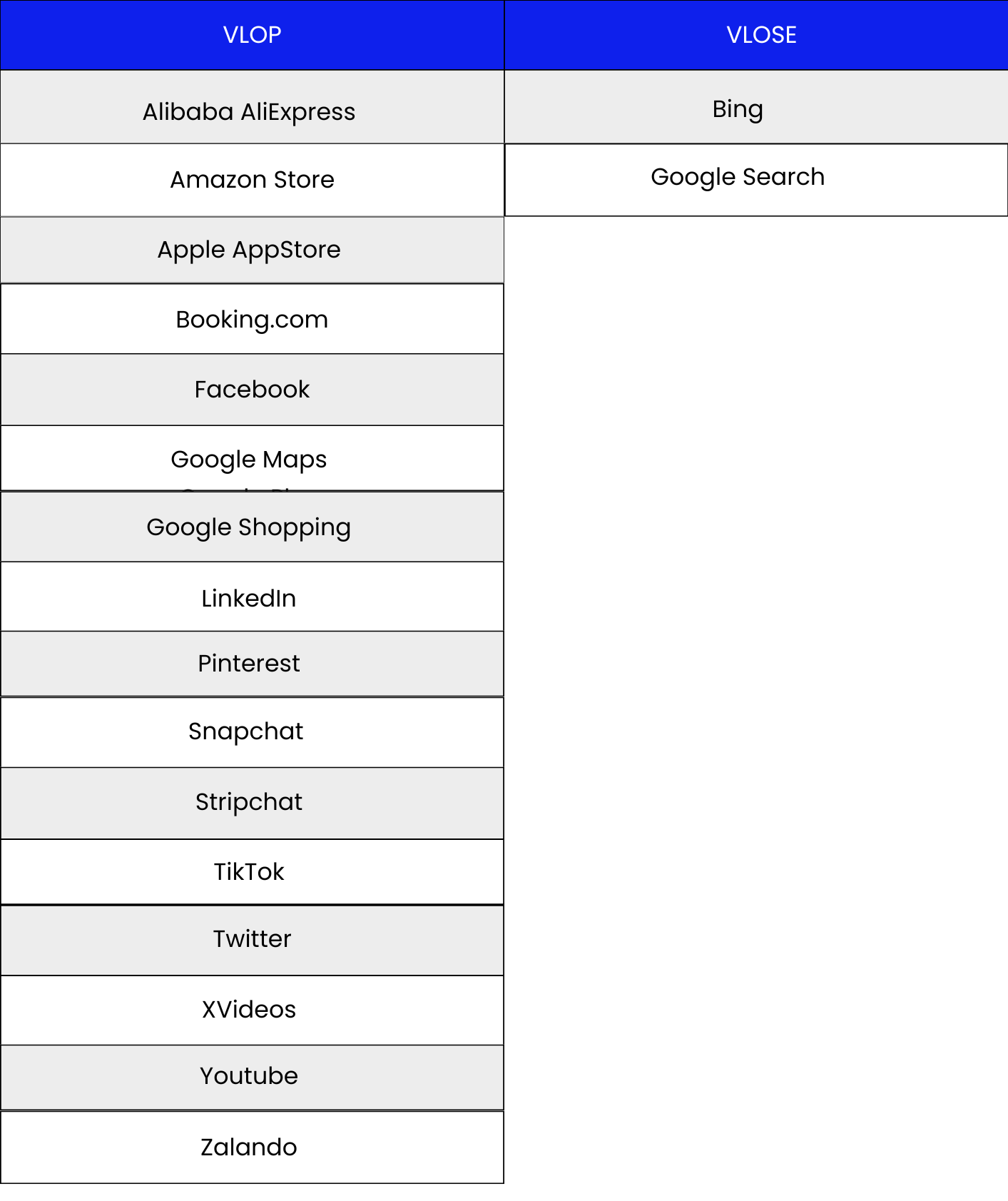Very large online platforms and the obligation to publish advertising repositories
19 June 2024 / Articles

Introduction
In the digital age, where gigantic amounts of data are processed on a daily basis and social interactions increasingly take place via the Internet, regulation of the operation of online platforms is becoming crucial. One of the most discussed pieces of legislation in this context at the moment is the Digital Services Act (DSA). It introduces a number of obligations for so-called very large online platforms (VLOPs), including the obligation to publish advertising repositories.
What are very large online platforms?
At the outset, it is worth defining what very large online platforms are. According to the DSA, very large online platforms are considered to be those with at least 45 million monthly active users in the European Union. Such platforms, due to their reach and impact on society, are subject to stricter regulation than smaller players. The status of very large online platform, or very large search engine, is granted by a decision of the European Commission. Currently, the following entities have very large internet platform or very large search engine status:

Obligation to publish advertising repositories
One of the key obligations imposed by the DSA on VLOPs, is the obligation to publish ad repositories. These platforms must collect and make available information on all advertisements displayed on their sites. These repositories must include, among other things:
1. the content of the advertisement – including the name of the product, service or brand and the subject of the advertisement as displayed to users.
2. advertiser data – information about the entity on whose behalf the advertisement is displayed.
3. data of the entity that paid for the advertisement, if this person is not the advertiser – if the advertisement was paid for by a person other than the advertiser, it is also necessary to indicate the data of this entity. The purpose of such a requirement is to indicate the entity in whose interest the advertisement is presented. In practice, meeting this requirement can cause challenges. Usually, providers are forced to rely in this respect on a statement by the advertiser as to whether he himself pays for the presentation of the advertisement or acts on behalf of another entity. It should be emphasised that providers are required to make “reasonable efforts to ensure the accuracy and completeness of the information” (Article 39(1) DSA).
4. impression period – the period during which the advertisement was presented (date of first and last presentation of the advertisement within the provider interface).
5. target group – information about which group of users the advertisement was targeted at (if the advertisement was intended to be presented specifically to one or more particular groups of users of the service). In the case of targeted advertising, targeting criteria must also be indicated. These criteria could be, for example, age, gender, previous activity on the platform, geographical area. If any negative criteria are also applied, i.e. criteria aimed at excluding the targeting of a given advertisement to a specific group or groups of recipients, such criteria should also be indicated. Negative criteria may be analogous to the positive criteria indicated above.
6. Total number of recipients of the service reached by the advertisement – this is an indication of the number of users to whom the advertisement was displayed; in addition, in the case of targeted advertising – VLOP providers are required to indicate the aggregated number of recipients of the advertisement by Member State.
The DSA also provides that the ad repository is to:
1. be accessible within a specific section of the VLOPs’ web interface;
2. allow searching for advertisements on the basis of multiple criteria and a reliable tool and via application programming interfaces (APIs). The obligation to provide search functionality via APIs, in practice, is intended to provide third parties with easier access to the information contained in the repository and for them to create their own search tools.
VLOPs should ensure that the repository does not contain any personal data of the recipients of the service to whom the advertisement was or could have been presented.
Purpose and significance of the regulation
The purpose of making the publication of ad repositories mandatory is to increase transparency in the area of online advertising. This enables users to better understand who is trying to influence their purchasing decisions through advertising and how. In addition, the regulations aim to prevent electoral manipulation and misinformation that can be spread through targeted advertising campaigns.
Consequences for online platforms
The introduction of mandatory publication of ad repositories imposes a number of new challenges on online platforms. They must invest in appropriate technology and human resources to comply with the new legal requirements. In addition, they must operate in a transparent and legally compliant manner, which may require modification of existing business practices. Failure to comply with the new regulations can result in serious consequences, including heavy financial penalties.
Impact on users and advertisers
The new regulations aim to protect users’ interests by providing them with greater control and awareness of the ads they see. Users will have access to information about ads, allowing them to make a more informed use of online services.
For advertisers, this means more transparency and accountability for advertising campaigns. They may face new barriers and challenges, especially in terms of compliance with the new regulations. The need to publish detailed information about advertising campaigns may also affect marketing strategy and campaign budgeting.
Summary
The Digital Services Act introduces significant changes to the operation of very large online platforms. While the new regulations, including the obligation to publish ad repositories, may pose challenges for VLOPs and advertisers, they aim to increase transparency and protect users from unethical advertising practices.
More information on the obligations imposed on very large online platforms is available in Chapter IX of the publication “Implementation of the Digital Services Act in e-commerce”, 2024, C.H. Beck Publishers, which I co-authored.

Need help with this topic?
Write to our expert
Articles in this category
MiCA does not cover DeFi. What does this mean for the crypto asset market in the EU?
MiCA does not cover DeFi. What does this mean for the crypto asset market in the EU?Liability for damage caused by autonomous vehicles – who is legally responsible?
Liability for damage caused by autonomous vehicles – who is legally responsible?Jacek Cieśliński in Puls Biznesu on the correct labelling of promotions
Jacek Cieśliński in Puls Biznesu on the correct labelling of promotionsGreen lies, real consequences – greenwashing in the light of the law
Green lies, real consequences – greenwashing in the light of the lawEuropean Accessibility Act (EAA) – a comprehensive guide for businesses
European Accessibility Act (EAA) – a comprehensive guide for businesses